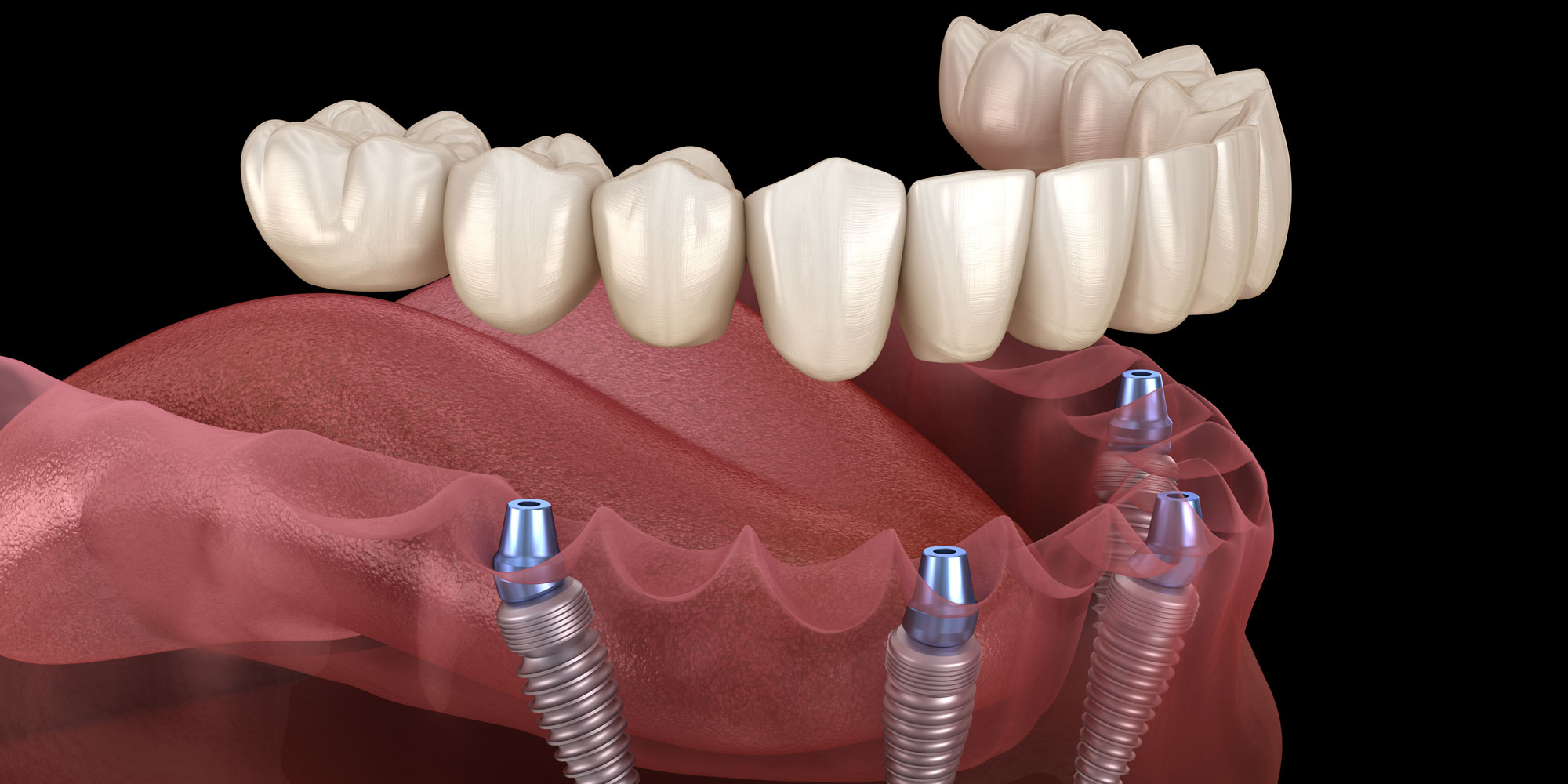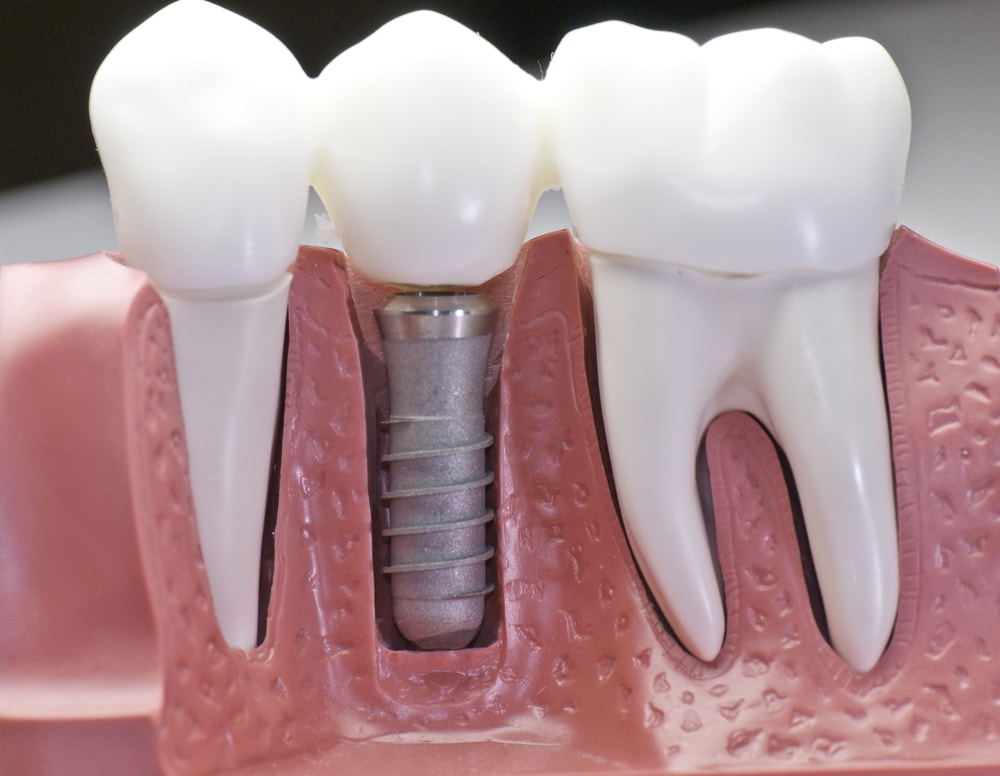More About Dental Sense
More About Dental Sense
Blog Article
The 5-Minute Rule for Dental Sense
Table of ContentsDental Sense - The FactsThe 9-Minute Rule for Dental SenseDental Sense Fundamentals ExplainedFascination About Dental Sense
are medical tools operatively implanted into the jaw to restore a person's ability to chew or their look. They provide assistance for artificial (fake) teeth, such as crowns, bridges, or dentures. When a tooth is shed because of injury or disease, a person can experience difficulties such as rapid bone loss, malfunctioning speech, or modifications to eating patterns that result in pain.Oral implant systems contain a dental implant body and dental implant joint and might likewise include a joint addiction screw. Same day dental implants. The dental implant body is operatively inserted in the jawbone instead of the tooth's root. The oral implant abutment is generally connected to the implant body by the joint fixation screw and prolongs through gum tissues into the mouth to support the affixed artificial teeth
(https://salty-hope-7c7.notion.site/Transform-Your-Smile-with-Expert-Dental-Services-178171a6c2a68016ac50cca51ef9527c?pvs=4)Structure of The Dental Implant System picking oral implants, talk to your oral provider regarding the potential advantages and risks, and whether you are a candidate for the procedure. Things to take into consideration: Your total wellness is a crucial consider establishing whether you are an excellent prospect for dental implants, exactly how long it will require to recover, and exactly how long the implant may stay in area.
Smoking cigarettes might impact the healing procedure and decrease the lasting success of the implant. The healing process for the dental implant body may take several months or longer, during which time you typically have a short-term abutment instead of the tooth. the oral implant procedure: Very carefully adhere to the oral hygiene guidelines provided to you by your dental provider.
Not known Factual Statements About Dental Sense
Implant failing can cause the demand for another procedure to deal with or change the implant system. Brings back the ability to chew Restores aesthetic appearance Aids maintain the jawbone from shrinking due to bone loss Preserves the health and wellness of the surrounding bone and gums Assists keep surrounding (neighboring) teeth stable Improves lifestyle Damage to surrounding natural teeth throughout implant positioning Injury to the surrounding tissues throughout surgical procedure, such as sinus opening Injury throughout surgical treatment (for instance, crack of bordering jawbone) Insufficient function, such as seeming like the teeth do not attack together usually An experience that the tooth hangs or turning in position resulting from an abutment screw loosening Implant body failure (looseness of the implant body) because of systemic infection, which might be most likely in individuals with unrestrained diabetes mellitus because of local infection in bone and gums sustaining the dental implant body because of postponed healing, which might be most likely in patients that smoke Problem cleaning up the gums around the dental implant, resulting in poor dental health Without treatment periodontal disease Post-surgical feeling numb because of nerve impingement or damage Constantly alert wellness care service providers and imaging service technicians that you have oral implants prior to any type of magnetic advice resonance imaging (MRI) or x-ray procedures.
FDA is not familiar with any adverse events reported for MRI or x-ray treatments with oral implants. Dental implants systems are commonly made of materials that comply with global agreement requirements of the International Organization for Standardization (ISO) or ASTM International. These criteria have information of what makes a risk-free material.

An oral implant is a framework that changes a missing tooth. With screw-like tools, the specialist inserts a dental implant right into the jawbone, and it acts as a support for a man-made tooth, called a crown.
See This Report about Dental Sense
Some individuals are not qualified for dental implant surgical procedure. It is for oral doctors to operate on people with: severe illnessuncontrollable metabolic diseasebone or soft cells disease or infectionIf these concerns are settled, an individual can have the surgical procedure. In, oral specialists abstain from operating people with: If individuals with any of the above go through dental implant surgical treatment, there is a higher danger of the implant stopping working.

Oral dental implant surgery is an individualized procedure. It's not the exact same for everyone. The complying with offers a general overview of what you can expect your dental professional, dental cosmetic surgeon, periodontist or prosthodontist to do: Position the implant operatively. Offer you time to recover. Connect the article and last crown, bridge or denture.
Next off, your cosmetic surgeon will very carefully put the dental implant into your jaw. Finally, your cosmetic surgeon will rearrange your gum tissues and shut the incision with stitches. If your dental implant is near the front of your mouth, your dental practitioner will certainly make a short-lived tooth for you to put on until you heal. By doing this, you won't have a gap in your smile while you recoup.
Everything about Dental Sense
Your provider can tell you what to anticipate in your situation. Throughout the healing stage, your jawbone must fuse to the dental implant. This procedure, called osseointegration, is essential for stability and long-term success. This process can take anywhere from three to 9 months. Sometimes, it may take much longer.
Once your dental implant heals, your dental professional can affix the joint (tiny adapter article) and your last restoration (crown, bridge or denture). This generally takes regarding one hour to finish and may require a 2nd minor surgical procedure. You should not feel any discomfort during your dental implant treatment since your provider will certainly utilize drug to numb your gums.
Report this page